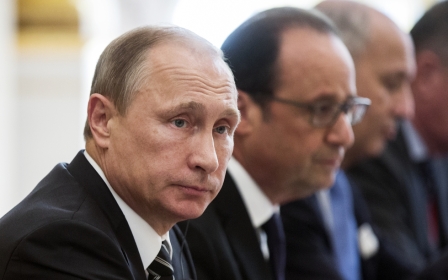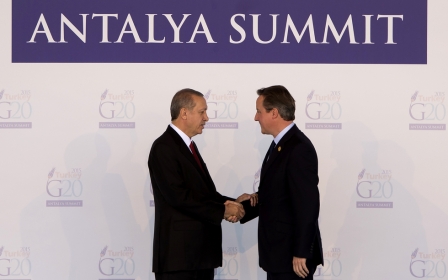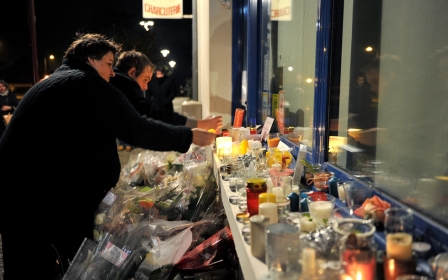David Cameron tells MPs: UK cannot afford to stand aside on Syria

David Cameron has appealed for British MPs to back the extension of airstrikes against the Islamic State group to Syria, saying the UK could not "stand aside" in the war and asking: "If not now, when?"
In a speech to Parliament on Thursday, the British Prime Minister said it was "morally" unacceptable to leave the US, France and other allies to do the work.
Cameron said there would be no vote in parliament unless he was sure there was a "clear majority", saying losing a poll would be a "publicity coup" for IS.
He stressed that the principle of self-defence meant there was legal justification for bombing IS in Syria, saying that the first responsibility of UK politicians is to protect British citizens.
"I am in no doubt that it is in our national interest to stop them. And stopping them means taking action in Syria, because it is Raqqa that is their headquarters," he said.
Cameron admitted that IS could not be defeated by airstrikes alone, but insisted that a bombing campaign could be a key part of a wider "comprehensive" strategy to deal with the threat.
However, he said he was against sending British ground forces into Syria, stating instead that the UK wanted to support the Free Syrian Army, whose numbers he estimated at 70,000.
"If we won't act now, when our friend and ally France has been struck in this way, then our friends and allies can be forgiven for asking: If not now, when?"
He indicated that any Commons motion on Syria would explicitly recognise that "military action is not the whole answer".
"We know that peace is a process, not an event and I am clear that it can't be achieved through a military assault on Isil alone, it also requires the removal of Assad and a political transition," he said.
Attack threat already 'very high'
The speech echoed an earlier written statement to the House of Commons foreign affairs committee.
"I believe that we should now take the decision to extend British air strikes against ISIL into Syria," he said, adding: "It is wrong for the United Kingdom to sub-contract its security to other countries."
"One thing is clear: the threats to our interests and to our people are such that we cannot afford to stand aside and not to act."
He rejected the idea that joining the US-led coalition in Syria would put the UK at risk of Paris-style attacks, saying the threat was already "very high".
The statement was a response to a foreign affairs committee report earlier this month. It concluded there should be no extension of air strikes without "a coherent international strategy that has a realistic chance of defeating Isil and of ending the civil war".
Britain is bombing Islamic State targets in Iraq but not Syria, due to a rejection of military action in a Commons vote in 2013 called shortly after a Sarin gas attack on the Damascus suburb, East Ghouta.
The RAF did however carry out a drone attack in Raqqa in September which killed Cardiff-born Islamic State group member Reyaad Khan.
The British Prime Minister said that the drone strike was a matter of national defence, saying there was credible evidence Khan was involved in the planning of attacks in the UK.
Another British man, Aberdeen-born Ruhul Amin, was also killed in the attack.
British naval pilots have also flown missions over Syria under the command of the US air force in a long-standing military exchange programme.
New MEE newsletter: Jerusalem Dispatch
Sign up to get the latest insights and analysis on Israel-Palestine, alongside Turkey Unpacked and other MEE newsletters
Middle East Eye delivers independent and unrivalled coverage and analysis of the Middle East, North Africa and beyond. To learn more about republishing this content and the associated fees, please fill out this form. More about MEE can be found here.




